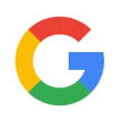In August 2021, Google announced an important update that had every PA SEO agency listening closely and reviewing their clients’ web pages. This update refined the way Google generated web page titles in search results pages.
The update essentially means Google may generate or replace any website’s title, as indicated in their HTML title tags.
The Problem with HTML Title Tags
In the old titles system, Google either pulls the text used in HTML title tags or generates a new title based on our queries or search keywords. This generally works well for well-written or optimized web pages.
However, many don’t have title tags that properly describe their actual content. In its update announcement, Google cited the following reasons for not using HTML title tags in certain cases:
- Extremely long titles
- Keyword stuffing the titles
- Complete lack of title tags or using generic descriptions
Many businesses fill their page titles with as many keywords as possible in a misguided attempt to rank higher in search results pages. This only results in extremely long titles that do not describe the information searchers might find on the page.
Businesses that do not consult any PA SEO agency also often end up not optimizing their title tags at all. They either forget to put anything in their HTML title tags or use boilerplate descriptions.
How Google Generates Page Titles
Starting in August, Google will no longer change the titles to match our queries. Instead, the search engine will create titles that match the document or content better. The new titles system aims to describe the pages better, rather than match specific search terms.
Google will look closely at on-page elements to ensure their relevance to the search queries and results page. It will generate the new titles primarily based on the main visual title or the page headline. This includes the following:
- Content tagged as the H1 or Header 1
- Other content within header tags, including H2, H3, and so on
- Large and prominent text based on style treatments
Google may also pull titles based on other content in the page, including anchor texts or text containing links to other pages.
What This Means for SEO Marketing
Although Google’s page title update is relevant to any business hoping to rank high in search results pages, it will not affect the majority of existing pages. The search engine will likely still use the HTML title tags over 80% of the time, notes Danny Sullivan, a search liaison for Google.
As such, this means that optimizing HTML title tags is still very important for SEO marketing.
Businesses can avoid having Google-generated page titles by creating HTML title tags that properly describe the page content. The key to this is to avoid keyword stuffing, extremely long titles, and generic titles.
Making use of keyword-focused headers, especially text in H1 and H2 tags, will also help in search results page ranking.
Enlisting the help and guidance of a PA SEO agency like Pendragon Consulting will help ensure your website remains up-to-date with all the changes, updates, and trends in the SEO marketing world. Contact us today to increase your brand’s visibility.





Leave a reply